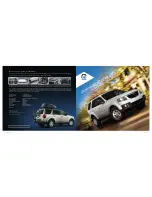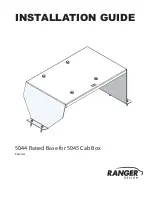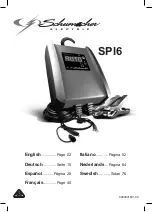
Continuous application of the brakes will cause the brakes to
overheat, resulting in a temporary loss of braking.
Occasional or intermittent brake squeal or groan may result from
environmental conditions such as cold, hot, wet, snow, salt, mud, etc.
This condition will not affect braking effectiveness. The brakes should be
checked only if squeal occurs continuously with every application.
If brakes do not grip well
•
If you have been driving through deep water, gently apply the brakes
several times while the vehicle is moving slowly.
•
Let the brakes cool if you have been using them excessively, as in
mountain driving or after several fast, high speed stops.
•
Check brake adjustment.
•
Check brake linings for excessive wear.
•
Check system air pressure.
Air brake reservoir draining
Failure to drain air brake reservoirs can result in a reduction or
loss of braking ability due to fluid accumulation in the reservoir
and/or possible freeze-up during cold weather.
Drain all the air brake reservoirs
daily, completely to 0 kPa/psi, by
opening the draincock at the ends
of the tanks (where accessible.
Pull-chains are used when the
drains are undercab or otherwise
inaccessible). Close draincock after
complete draining. Air tanks
equipped with automatic moisture
ejector valves may also be drained
manually as required to maintain a
dry air system. Contact your dealer if you are unsure of the air reservoir
locations or the draining procedure.
Air brakes
After starting the engine, give the air compressor time to build up the air
pressure to 414 kPa (60 psi) before moving the vehicle.
2004 F650/750
(f67)
Supplement
USA English
(fus)
Driving
98
















































